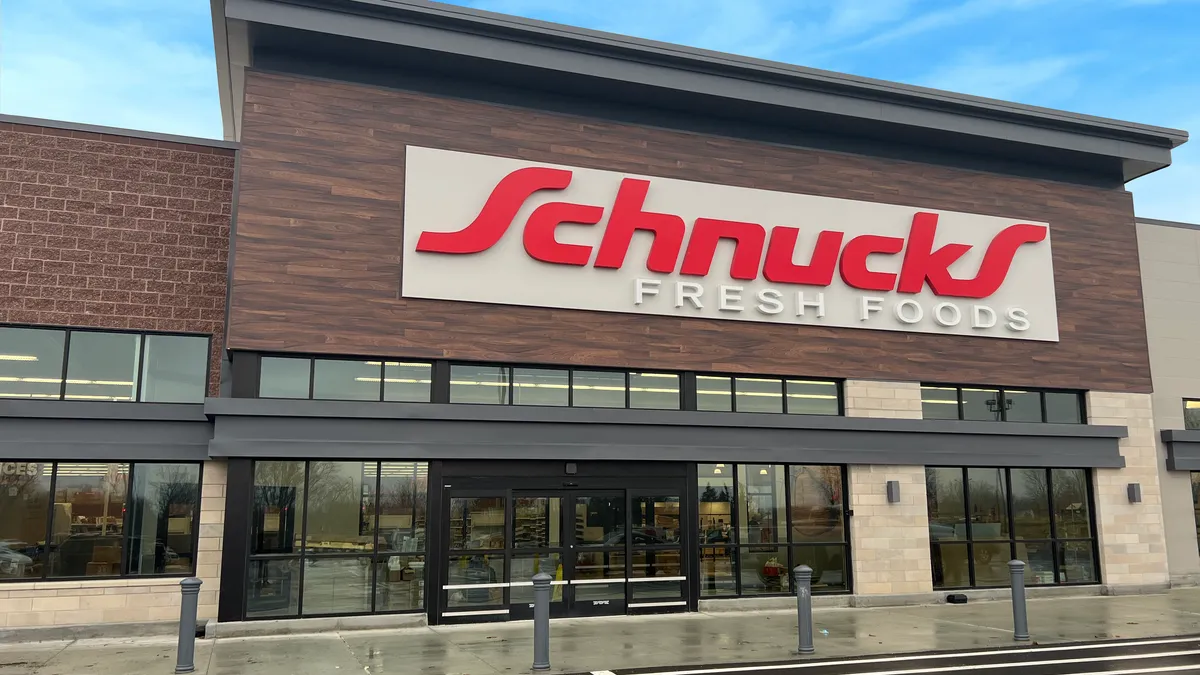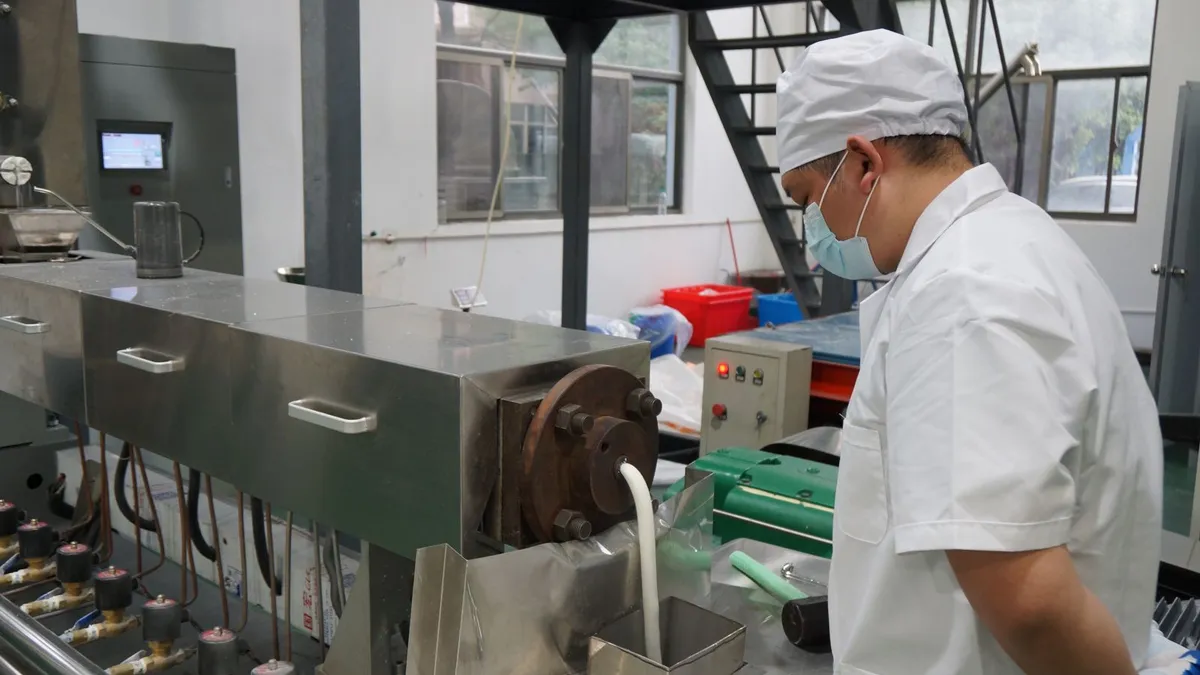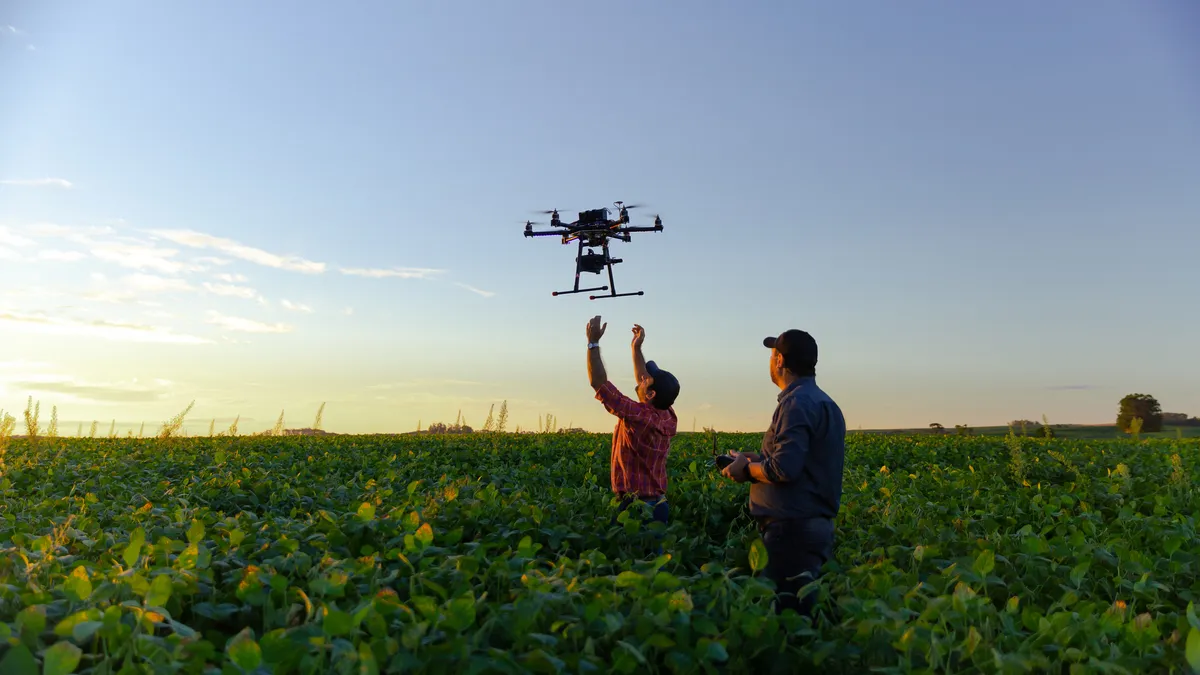Fresh off a successful pilot of technology that rapidly notifies shoppers when locally grown produce arrives in stores, Schnuck Markets has decided to roll out the capability to more of its supermarkets next year.
The system, supplied by Montana startup Foodshed.io, uses tracking devices placed in produce bins to monitor foods as they travel from a farm to a Schnucks store and triggers an alert via the grocer’s loyalty program app when a shipment reaches its destination. Foodshed.io sends the alert on to Schnucks’ loyalty program staff, who broadcast a message to shoppers who have signed up to let them know the item is ready for purchase.
Schnucks tested the concept at a handful of its 115 locations last summer and concluded that providing shoppers with the ability to know right away when certain fruits or vegetables are available would help it stand out against other grocers on a larger scale, said Mike Tipton, Schnucks’ vice president of produce and floral.
The company has not yet determined which of its stores will offer the service when the next growing season rolls around, he said.
“Local is real big and it’s got a big buzz, and we’re trying to find different avenues to touch the consumer and let them know about the items that that they’re really engaged with and are looking forward to when they come in season,” Tipton said. “It’s one of those differential advantage that our competition like Walmart and Aldi are not doing.”
Foodshed.io supplies the reusable sensors to growers, and the company shares the cost associated with the service with Schnucks, according to Dan Beckmann, co-founder and CEO of the technology firm.
Tipton noted that Schnucks is limiting the system to produce that shoppers in its service areas make a special point of trying to buy at the peak of freshness — like corn, melons and cantaloupes — generally within a day or two of when they are harvested.
“People gravitate to buying local produce, and we like to do the best job of it in our communities,” Tipton said, adding that sourcing local fruits and vegetables is challenging in the states where Schnucks operates because the growing season is relatively short. As a result, Schnucks plans to offer the service only during July, August and early September, when farms located within range of Schnucks’ stores typically harvest produce, he said.
A focus on personalization
Schnucks’ decision to deploy Foodshed.io’s produce-tracking technology on a larger scale reflects a broader effort by the grocer to use digital tools to customize the shopping experience for its customers, said Cristina Preston, who handles digital marketing for Schnucks.
“We always promote with in-store signage, and we are very loud and proud about having local products — and specifically produce — but we are moving into a digital world,” said Preston, adding that Schnucks believes the produce alerts could encourage people who might not have intended to go shopping that day to head to the store.
“We have personalized offers and personalized value that meets that customer right where they're shopping, and this is a piece of that,” Preston said. “We're trying to soften [technology] a little bit.”
Schnucks’ relationship with Foodshed.io began about five years ago, when the companies began working together on efforts such as helping growers gauge how much of a given product they need to produce to meet the grocer’s needs so supplies don’t run out, according to Tipton.
“It’s our goal to get the customer local produce in the summer all the time” unless bad weather or other unforeseen conditions make it necessary for Schnucks to look elsewhere for supplies, he said.
Schnucks also uses information it collects with Foodshed.io’s technology to help ensure farms the grocer works with maintain records related to food safety, Tipton said.
In addition to working with Schnucks, Foodshed.io has talked with The Fresh Market about using its technology, Beckmann said. The company has also been in touch with an unnamed “national grocer,” he said, noting that Foodshed.io has an exclusive arrangement with Schnucks in the areas where the grocer operates.
Based in St. Louis, Schnucks runs stores in Illinois, Indiana, Missouri and Wisconsin under the Schnucks, Schnucks Fresh and Eatwell Market banners.
Beckmann said Foodshed.io has started looking into ways to automate the process of drafting and sending messages to shoppers to invite them to head to a store when produce arrives from a farm, possibly by tapping generative artificial intelligence technology. “We not only just want to reduce the workload for that team, but we want to improve the personalization if we can,” Beckmann said.
Foodshed.io also plans to build tracking equipment that it could use in place of the third-party hardware it currently depends on, and already has a prototype in development, Beckmann said. The company’s goal is to lower costs while adding more features, he said.
While Foodshed.io is focused on its role as a technology supplier to retailers, the company also feels a deep connection to the contribution it is making to the fresh food industry and sees its technology as a way to help reduce food waste, Beckmann said.
“An unintended consequence here is that these farms are stronger because Schnucks has made this commitment, and they’re able to sell [produce] to restaurants and other parts of the community now in a way that’s more stable,” he said.




















